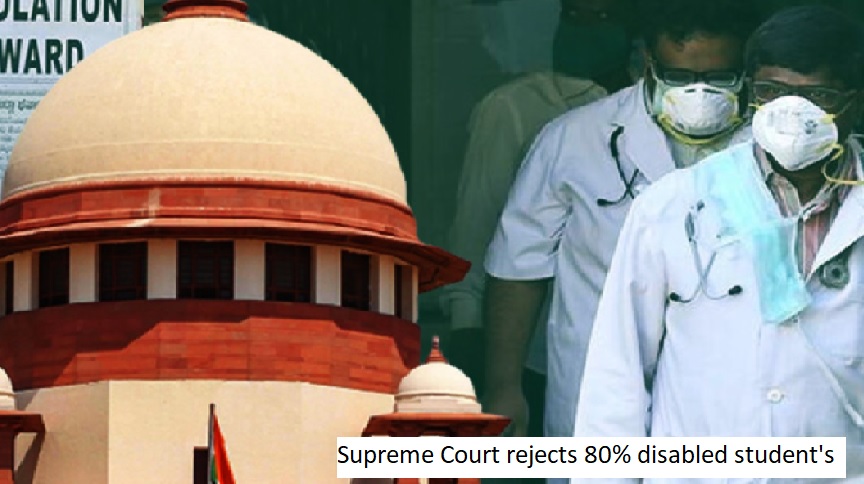


The Supreme Court rejected a plea from an 80% locomotor-disabled student for MBBS admission under the PwD quota (2023-24). The court also reminded the Central government to address disability inclusion, as previously ordered.
The Court noted that the Central Government has not addressed the need to find a suitable solution for enabling the effective participation of persons with disabilities, as ordered on 22.09.2023, and emphasized the need for compliance.
The Supreme Court bench, consisting of Justices MM Sundresh and Aravind Kumar, presided over a writ petition under Article 32 of the Constitution, regarding admission to the MBBS course in the PwD quota. The petitioner had not been declared medically fit for admission by the medical board.
In this case, the petitioner had a locomotor disability and sought reservation under section 32 of the Act, which requires a minimum disability of 40%. The petitioner possessed a medical certificate from a civil hospital in Surat, certifying a 40% disability due to congenital UL deformity.Top of Form
Nonetheless, on July 27, 2023, the medical admission board evaluated his disability at 80% and diagnosed him with Kyphoscoliosis deformity, webbed neck, right upper limb significant weakness, right wrist dorsiflexion weakness, and shoulder weakness. The Medical Board, in its appeal, reaffirmed these findings, leading to the petitioner's disqualification for admission to a medical course.
The Court had previously taken a compassionate stance and had requested two comprehensive medical assessments by AIIMS. However, based on the assessments conducted by expert doctors, it was determined that the petitioner's health conditions did not make him eligible to pursue the course.
In the final attempt, the petitioner referred to the Amendment notification of the Graduate Medical Education Regulation, 2019 to convince the bench. However, the court clarified that the upper limit of 80% disability applies only to candidates with both hands intact, possessing intact sensations and sufficient strength. These factors are essential for consideration in medical courses. Regrettably, the petitioner did not fulfill these criteria due to the absence of such sensation.
Previously, the Court had emphasized that individuals with disabilities should not be denied access to MBBS courses solely based on a quantitative evaluation of their disabilities.
TAGS: Court Persons with disabilities MBBS courses Excluded Quantitative assessment